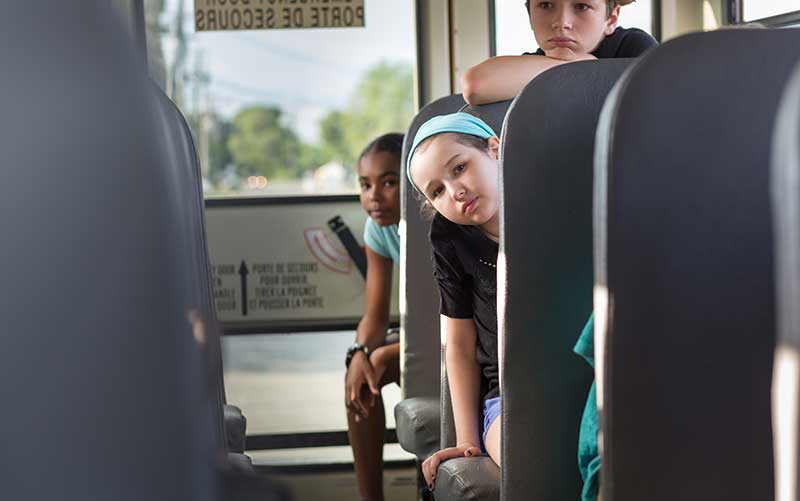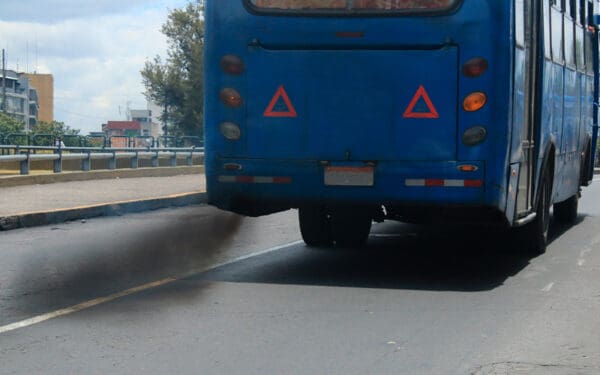
Even one minute of idling allows toxic tailpipe pollution to build up inside buses – where children then breathe in these toxic fumes on their way to school. Photo: Skyward Kick Productions via Shutterstock
Everyone has the right to clean air – just like everyone deserves access to clean water, healthy food, and a safe place to live. Air quality affects our homes and livelihoods, and pollution can put this all at risk by increasing the rates of serious health problems such as asthma, bronchitis, emphysema, and even lung cancer. Too many communities today are denied access to this fundamental right – and it’s not by choice.
Tailpipe pollution from idling vehicles is one of the major threats to clean air. This problem commonly affects low-income communities and harms the most vulnerable groups within them. Children are at particular risk because they are very active, and their bodies (and lungs) are still developing.
While several states have laws to restrict the amount of time a vehicle can idle, these “anti-idling” regulations are rarely enforced, making it easy for polluters to violate them. That’s why CLF is stepping in to enforce the law and protect the health of local communities.
When we win a case, we hold the polluter accountable by requiring it to fund clean air projects in the community where its tailpipe pollution did the most harm.
Here’s the story of our most recent win.
The Case Against Transdev and Its Tailpipe Pollution
In our latest case to stop toxic tailpipe pollution, we sued Transdev Services, Inc., under the federal Clean Air Act. Transdev is a leading provider of transportation throughout the country, including Boston’s public school buses. In 2019, we tracked 42 incidents when its Boston buses idled longer than the state’s legal limit of 5 minutes. In several instances, idling exceeded 30 minutes, even reaching 90 minutes at least once.
Even one minute of idling is long enough for exhaust pollution to build up inside school buses – where children then breathe in these toxic fumes on their way to school. What’s more, the Transdev buses operate in communities – Charlestown, Dorchester, and Roxbury – that already suffer higher rates of air pollution and the health issues that come with it.
Stories of Transformative Work
Transdev’s excessive idling impacted our communities and those living there. How can we begin to repair that harm? We can start simply by giving power back to the community. That’s why CLF is holding Transdev accountable for its tailpipe pollution by requiring them to fund projects at three local nonprofit organizations: Speak for the Trees, HEET (the Home Energy Efficiency Team), and Alternatives for Community & Environment (ACE).
In recent months, I’ve been able to catch up with each of these organizations to understand their mission and how their work can help heal the communities affected by Transdev.
Read their stories here:
- Speak for the Trees: Building Climate Resilience by Planting and Saving Trees
- HEET (the Home Energy Efficiency Team): Cutting Carbon
- Alternatives for Community & Environment (ACE): Reducing Air Pollution in Roxbury



